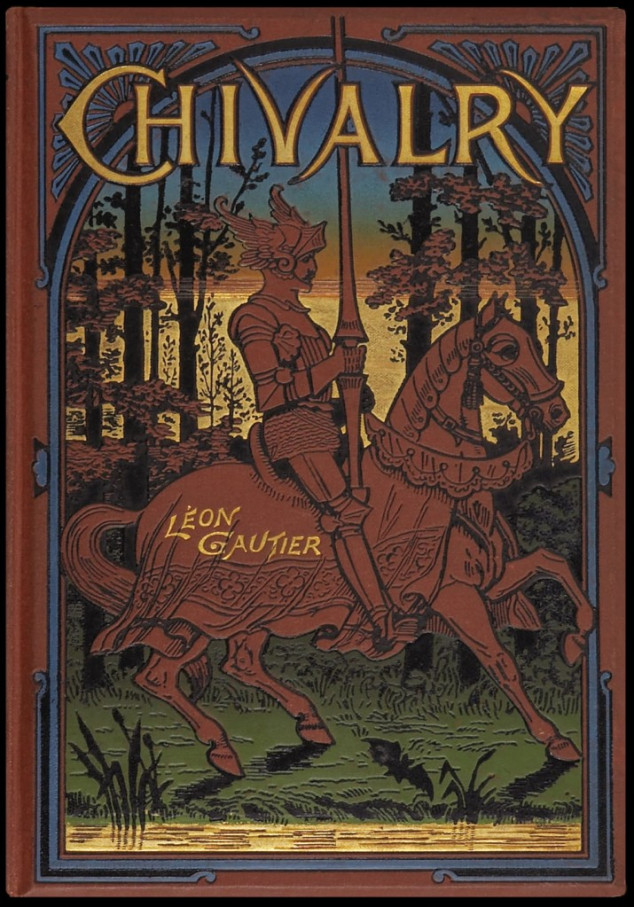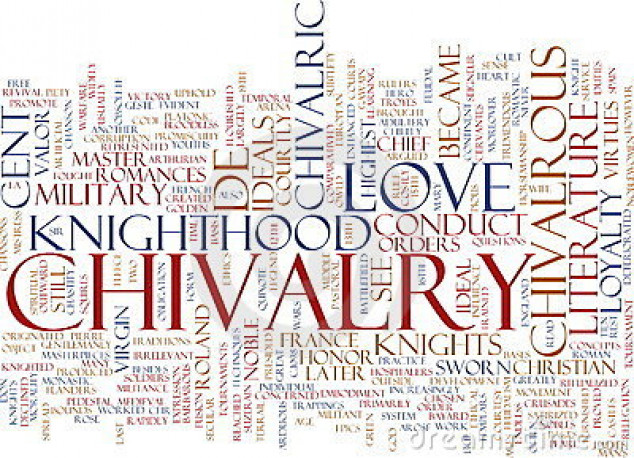Arvin Advocates: Chivalry
If you’ve ever heard the term “Chivalry is dead”, you’ve probably thought to yourself something along the lines of “What does chivalry even mean?”. Or maybe you thought “Why should I even care?”. Well, if you are such a person or if you have wondered these things yourself, then you are in luck because I’m here to explain the meaning and importance of chivalry.
When, and if, chivalry is thought of in our modern day and times, these are the kind of images that often come to mind: The knight in shining armor riding to the rescue, willing to fight to the death to protect the honor of a pretty princess and winning her heart in the process. The noble knight laying his cape over a puddle for a beautiful young maiden. A handsome young man making his date swoon as he hurries to open the car door for her, and closing it for her once he is sure she is safely tucked in.
By definition, chivalry is: the sum of the ideal qualifications of a knight, including courtesy, generosity, valor, and dexterity in arms. Its origin dates back to medieval times. Medieval chivalry was a code of conduct for those men who had been honored with the prestige of knighthood. Knights were expected to behave in a chivalrous manner at all times. Ideally, a knight was an exemplary gentlemen. He was a man of unquestionable character and brought honor and respect to himself, his family and his country by the way he lived his life. Traits included in the medieval code of chivalry were: honor, courtesy, valor, loyalty, nobility and fair play.
You might wonder what the heck this all meant in the actual life of a knight, or if it even really mattered. A medieval knight lived and died by the code. It was the driving force behind all his actions. Valor meant acting and speaking with courage, righting wrongs, and fighting with honor. A Knight was supposed to keep the weak and innocent safe. He had a duty to make sure that justice was carried out. As he carried out these duties, he had to be polite, honest and loyal. He kept his word and did not betray the confidences of his friends. He did not cheat, lie or torture.
Last, but not least, he was noble. Being noble meant following the law, using self-discipline,and protecting the innocent. The noble knight treated all women he encountered with courtesy and respect.
Over the centuries, chivalry has come to take on a whole new meaning. The idea of chivalry has taken a on a more romanticized persona, influenced mostly by literature. In the late 12th century, Andreas Capellanus wrote “Rules Of Courtly Love”. This book lists 31 rules a courtly lover must follow. The rules are illustrated in the fictional tale of Sir Lancelot and Queen Guinevere. In the early 16th century, Castiglione wrote a book called “The Book of the Courtier”. This was basically a book showing how the perfect courtier(chivalrous knight) and the perfect lady should act. It was about manners and behavior based on the knights’ code of chivalry. But the literature of the late 18th and early 19th centuries did the most work to romanticize the idea of chivalry, creating the images we are most familiar with. The images that show the knight as a romantic figure, with passion for both his love and for what he believes is right. Nothing can stand in his way.
Modern day chivalry has become associated more with romantic gestures than with a code of duty or a way of life. It can still be both. Sure, it’s easy to be chivalrous and hold a door open when you are with your girlfriend, or because you think a girl is hot and want to impress her. But chivalry does not just mean acting right when it’s easy, or when you think there might be something in it for you. Every female we meet is someone’s mother, sister, cousin, aunt or grandmother.
Stop and think for a minute of all the things just your own mother has done, and done for you, in this lifetime. Think of how you would want some guy treating your little sister. Women may not need us to help them or to take care of them. They are more than strong enough and smart enough for that. What they deserve from us is to be given respect and honesty, to be treated with kindness and courtesy.
This we can do for any female, even total strangers. As for the women in our lives, we can give them honesty, loyalty, and friendship as well. We can be a strong shoulder to lean on or to cry on, or we can be strong enough to let them find their own way through whatever might be going on. I believe that chivalry is not just something men do to make women’s lives better; it is something we do because it is right and that makes life better for everyone.
Today many believe that chivalry is no longer an important part of romance, or life. Many of them believe chivalry is totally dead. News flash: People such as myself do exist and we are proof that that assumption is entirely false.







While I appreciate your comments on chivalry, where is that academic challenge article you researched for months? 🙁